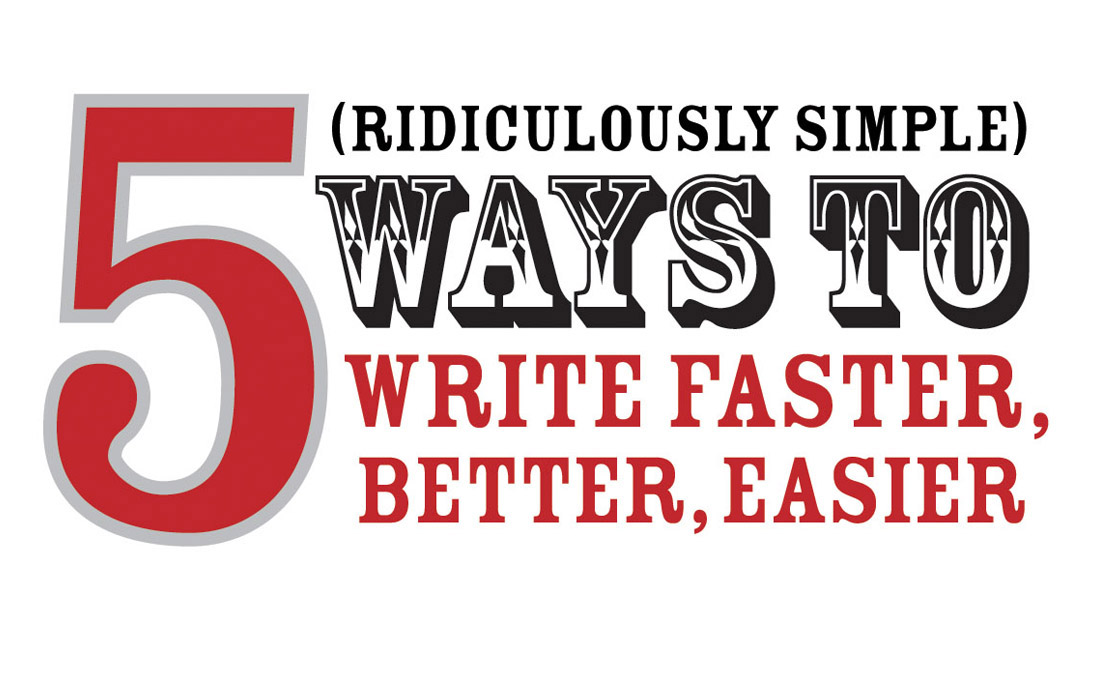Write Faster with Sporadic Writing
 Tuesday, July 6, 2010 at 08:05PM
Tuesday, July 6, 2010 at 08:05PM 
500 puzzle pieces are staring you in the face.
What do you do?
Put the puzzle together in order, top to bottom?
Or put the puzzle together sporadically?
If you’re lucky, you can start at the top and put the puzzle in order.
But, then again, you might not be so lucky.
Building your puzzle out of order, or sporadically, might be a better option
Of course, the same concept applies to writing your content. If you’re stuck writing in order, top to bottom, it’s time to play a little trick with your brain.
It’s time to write sporadically.
What do you mean, write “sporadically?”
We often associate “sporadic” to mean being “scattered,” “spotty” and “occurring occasionally.”
The Medieval Latin word “sporadic” means, “scattered like a seed” and “sow.”
This is interesting.
If we write sporadically, it means we can “scatter” and “sow” our words into our content. We don’t have to start in some magical place like the beginning. We don’t have to write in “order,” from top to bottom.
We can begin writing where we feel like writing. In other words, we can write sporadically.
Why bother writing sporadically?
Writing sporadically is liberating.
Instead of staring at the top of the page waiting for inspiration to take over, you start writing anywhere. There’s no pressure to think, “Now I have to write starting here.” You begin writing where you are moved to write; the end, the middle, the beginning.
And when you can begin writing anywhere, you have speed. You have momentum.
So how do you begin writing sporadically?
You begin writing sporadically wherever you feel the pull. Is the pull:
• In the ending?
• In the opening?
• In the three steps you want your reader to take?
If you have a rough outline of what you want to say, write what strikes you at the moment. Think “random;” there is no right or wrong place to start.
• You can write a sentence here.
• You can write a sentence there.
• Yup, you can write a sentence anywhere.
When is a good time to write sporadically?
A good time to write sporadically is when you feel sluggish, not thinking clearly or if you feel under pressure.
If it doesn’t feel orderly
You’d certainly be right about feeling that way.
If you try writing sporadically for a few weeks, you’ll discover a moment when you feel “lighter” about the demands of writing.
For example
I wrote my article “Why Precise Email Subject Lines are Like Diamonds” sporadically. I used an outline but I found myself filling in the areas here, there, and um, everywhere over time.
In summary, writing sporadically is:
1. Liberating. You don’t have to struggle with order.
2. Random. It provides your brain a bigger playground to express itself in.
3. Speedy. You write as ideas come to you.
The next time you’re stuck writing an assignment, try writing sporadically.
You just might find it easier than putting that 500-piece puzzle together.
PS. If you enjoyed this article, feel free to share it with the "Share Article" button below. Thanks.






